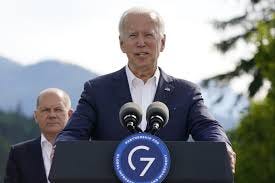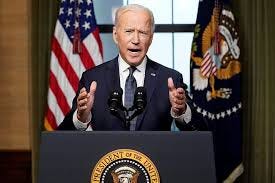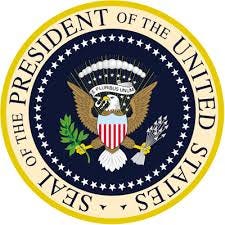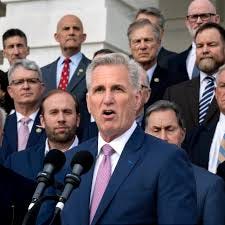Biden Can Act Now to Avoid Debt Default
Order Treasury to Borrow Under Constitutional Duty to Take Care Laws Faithfully Executed and 14th Amendment
Biden seems confused about what to do about the debt ceiling, and he is getting bad advice: legal and political from his advisers. Biden was quoted by the NY Times as saying about a 14th Amendment challenge to the constitutionality of the debt ceiling:
“I think we have the authority,” Mr. Biden said at a news conference after the Group of 7 summit in Hiroshima, Japan. “The question is could it be done and invoked in time.”
Mr. Biden added that after the current crisis is resolved, he hopes to “find a rationale and take it to the courts” to decide whether the debt limit violates a clause in the 14th Amendment stipulating that the United States must pay its debts.
There are two important Constitutional provisions at issue. One is Biden’s duty under Article II, Section 3: “he shall take Care that the Laws be faithfully executed”. The other is the 14th Amendment, Section 4 which says “The validity of the public debt of the United States, authorized by law, including debts incurred for payment of pensions and bounties for services in suppressing insurrection or rebellion, shall not be questioned.”
Biden is quoted at the G7 meeting that he will seek judicial review of his actions after a debt ceiling compromise is reached. That has things in the wrong order. There is no reason to resolve the debt ceiling dispute in Congress as Biden has Constitutional power to take appropriate action to keep the nation from defaulting on its obligations. Also it should be clear to Biden that there will be no resolution in the Congress as Democrats and Republicans are far apart, and let’s not repeat the calamity of 2011 when Obama and Biden knuckled under to Republican threats to undermine the economy by agreeing to the hideous Budget Control Act of 2011.
Let me suggest an Executive Order that Biden should immediately issue:
“As President of the United States, in order to fulfill my Constitutional obligation to see that all laws are faithfully executed as required by Article II, Section 3 of the Constitution, I direct the Secretary of the Treasury to issue that debt necessary and proper to fund all of the obligations authorized under the prior Budget Acts, and in the event that the total public debt exceeds the amount stated in 31 U.S.C. Sec. 3101(b), I declare that said provision of the United States Code authorized by a prior Congress is in conflict with the Budget Acts adopted by the Congress, and I therefore to resolve that conflict declare that the debt limit of 31 U.S.C. Section 3101(b) is unconstitutional under the Fourteenth Amendment, Section 4 as it is inconsistent with the Budget Acts already adopted by the Congress and is unconstitutional if read to question the necessary public debt to fund Congressionally authorized programs and activities.”
If Biden issues that Executive Order, the financial markets should be calmed by the decisive leadership shown by the President in fulfilling his Constitutional duties and ensuring that all Congressionally authorized programs are funded by such debt as is necessary in addition to revenues to fund those past and present obligations.
Now how can the President’s Executive order be challenged? Some Republicans might file a legal action in a District Court challenging the Executive Order as in excess of the President’s powers and authority. But they would have to overcome the very strong objection that these Republicans do not have standing to seek an order invalidating debt issued in excess of the debt limit. For federal standing purposes, the Republicans would have to show that they had some particular and definite injury they suffer because the President directed issuing debt necessary in addition to revenues to fund all Congressionally authorized programs and activities. What could they possibly claim was their individualized injury through funding programs Congress authorized? Would anyone else in the United States have standing to challenge the Executive Order? It is doubtful since how does any citizen claim specific injury from funding some programs authorized by Congress? Which is not to say that some right-wing groups might file litigation even though standing will be a very tough bar. What if a State sued under 28 U.S.C. sec. 1251(b)(2) which provides original jurisdiction in the Supreme Court in any controversy between the United States and a State. The State would still have to prove standing to sue, and it would have to argue that funding some programs somehow causes them individualized injury. But it would be difficult to link funding any specific program to funding new debt as the debt is, generally, not tied to individual programs.
So let’s suppose that some Plaintiff succeeds in getting past standing, what would the Supreme Court do with a challenge to the Executive Order? The Justices would know that a negative decision invalidating the Executive Order would have immediate and colossal negative effects on the economy. Would five Justices be willing to pull that pin on the economic hand grenade? That is doubtful which is another reason why they would reject the challenge under standing grounds to avoid the difficult merits questions.
In a previous Newsletter I argued that the U.S. should sue an objecting State and get original jurisdiction in the Supreme Court, but if they did so the standing argument would be removed which is the easiest way out for the Court. So, on reconsideration I withdraw my suggestion of an original declaratory action by the U.S. But in the quote of Biden at the G7 he seems to think about filing litigation for a declaratory judgment that the Executive Order is valid after he resolves the immediate crisis. Well, that is not going to happen as the parties will not come together on a compromise, and hopefully the Democrats will not succumb, and Biden should know that. He should recall the debacle of the Budget Control Act of 2011.
Politically, if Biden issues the Executive Order avoiding economic collapse by his actions, he should win politically as he would have saved the economy from those Republican economic terrorists. His standing should rise by stabilization of the markets and resolution of the debt ceiling crisis in a way that does not involve capitulation to the Republicans.
The worst thing that could happen is if Biden and the Democrats actually enter into negotiations with the Republicans and accede to some of their demands for stringent work requirements, cutting all programs 18% over ten years, and abandonment of the climate change provisions of the Inflation Reduction Act. How could Democrats accede to such Republican demands? Biden’s Executive Order would remove that threat.
But time is running out and Biden should seriously consider issuing an Executive Order as soon as possible so the US does not slide over X-date with no plan in place.










I would hope this is correct - I'm not an Economist or a Lawyer so I have to rely on experts to tell me what the facts are, and this all sounds totally logical to me & is in accordance with what others have said about that law - but - why has this not been done in prior admins, everybody seems terrified to test this hypothesis. Does Biden have the guts to take it on, or are they all scared of the time it would take, and the arguments causing the markets to get scared ? We know the Repubs would scream bloody murder - but it's strange how it's never a problem at all when they have the WH - IOW the Dems never threaten THEM like this !